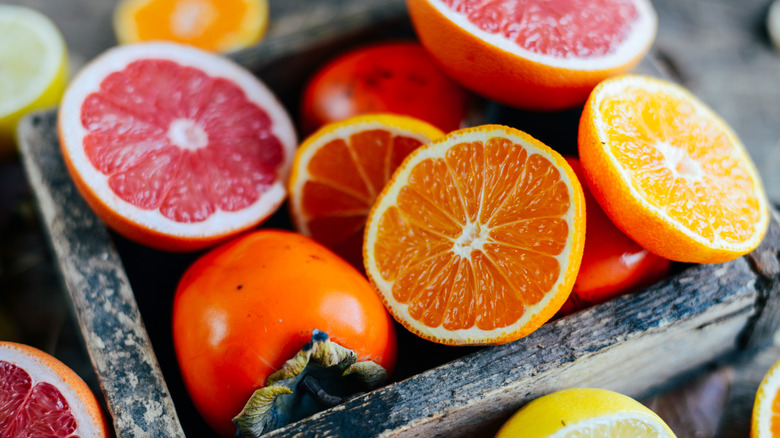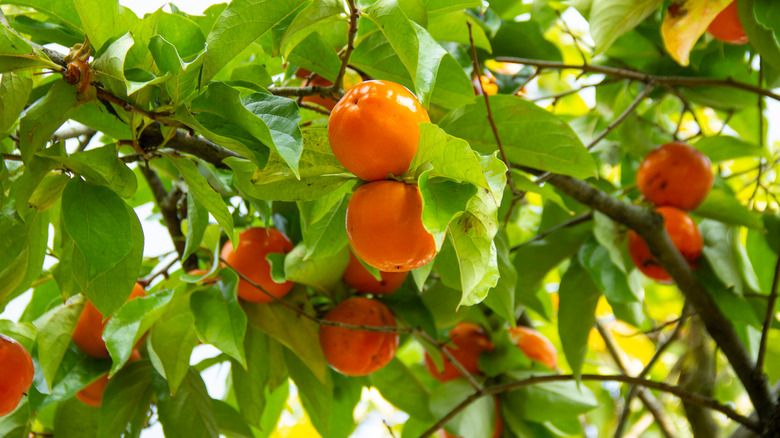Why Do Tangerines Taste Different From Persimmons?
If you've ever taken a juicy bite of your favorite fruit and taken a moment to admire its complex flavors and design, then you'd agree that fruits are fascinating! With so many varieties to choose from around the world, its hard to wrap one's head around the sheer amount of weird and wonderful fruit that exists out there. You may have stared idly at your store's fruit section before, scratching your head at which of the different oranges types you should use in your pound cake. Then there's the challenge of knowing when a fruit is ripe enough to eat or not. It's a lot to pick up on.
Persimmons, if not ripened fully, can leave you with a very strange taste lingering on your tongue after biting into one. This unique, seedless fruit could be easily confused with a citrus fruit like the tangerine upon first glance, but they actually taste quite different based on one specific chemical.
What healthy chemical can be found in persimmons?
The word "astringent" is often used when describing a persimmon's taste and its ability to make the mouth seem dry and fuzzy. This is because the persimmon is unripe and full of tannins, which are healthy natural antioxidants and natural preservatives that can be found in a variety of fruits (via Delishably). Generally, if your persimmons are on the softer side and more aromatic, they should be ripe enough to actually taste good when you bite into one. Persimmons are chock-full of tannins compared to tangerines, which is why they differ in their uniquely pungent flavors.
Thankfully, there are delicious ways to eliminate the astringent quality of a persimmon when you transform them with a tasty persimmon jam recipe, bake them into bread or warm cookies, or cook them into a pudding with hints of honey (via Insanely Good Recipes). If you're a big fan of both tangerines and persimmons, you might want to try throwing them together into a fresh salad for a burst of citrus-filled energy to carry you through a sleepy afternoon.

